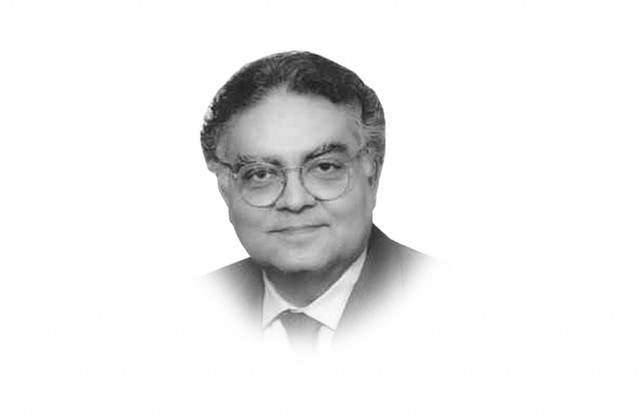Perspective for a policy review
National policy needs to integrate foreign, economic policy & military strategy, enable people to actualise potential.

Perspective for a policy review
Two features of the contemporary world form the backdrop of a ‘grand strategy’ for Pakistan are: (1) A globalised economy which provides to a relatively small-sized country, if appropriately positioned, could result in unprecedented prospects of rapid material progress. This can happen through international flows of capital, goods, services, technology and knowledge. Until the onset of the present recession, three trillion dollars were crossing international borders every 24 hours in pursuit of investment opportunities. Exports of goods, IT services and import of technologies and knowledge have rapidly transformed the economies of China, India and the Asean countries in recent years. (2) In the post-war period, individual countries have benefited through global economic intercourse on the basis of regional blocs such as in North America, Europe, Africa and Southeast Asia. Individual countries achieve efficiency gains through specialisation in larger regional markets and reduced transaction costs made possible through integrated regional institutions. This not only stimulates growth at the regional level but it also gives to member countries the leverage to deal on better terms with the rest of the world.
The material welfare and, indeed, the security of a people in any one country are based on using reason rather than ideology in the conduct of foreign relations. Similarly, preserving sovereignty involves rational negotiation with the international community to win space for independent policy in core areas of national concern.
Within this perspective, some of the parameters of Pakistan’s grand strategy are: (1) Build close economic and political relations with the countries of South Asia, West Asia and Central Asia and have an open and cooperative relationship with the rest of the world on the basis of core concerns of the country. (2) National security is undermined by a strategy of deceit, whereby, claims of cooperation are combined with nurturing extremist militant groups as strategic assets for intervention in neighbouring countries. As we have seen, these extremist groups are not entirely controllable as foreign policy tools, and, worse, develop domestic extremist political agendas that threaten the state. (3) Pakistan’s future lies in strengthening democracy so that the military becomes subordinate to elected civil authority. It is the democratic government that has the mandate for national policymaking and not the military. (4) Unleash the creative and productive potential of the people by providing access to high quality education, health, judicial services and the protection of life, property and democratic freedoms. These are the entitlements that will actualise the human capabilities. National security cannot be predicated on economic deprivation, bigotry and the resultant internecine violence in society. (5) Economic policy must aim to build a new institutional structure and new priorities of public sector resource allocation whereby all of the people, rather than a few, have access to productive resources, basic services and the opportunities to invest, produce and innovate.
The national policy paradigm needs to integrate foreign policy, military strategy and economic policy with the central aim to provide to the people of Pakistan the opportunities to actualise their human potential. They must have security of life, livelihood, justice and the opportunity to live in freedom and without fear.
Published in The Express Tribune, December 13th, 2011.














COMMENTS
Comments are moderated and generally will be posted if they are on-topic and not abusive.
For more information, please see our Comments FAQ